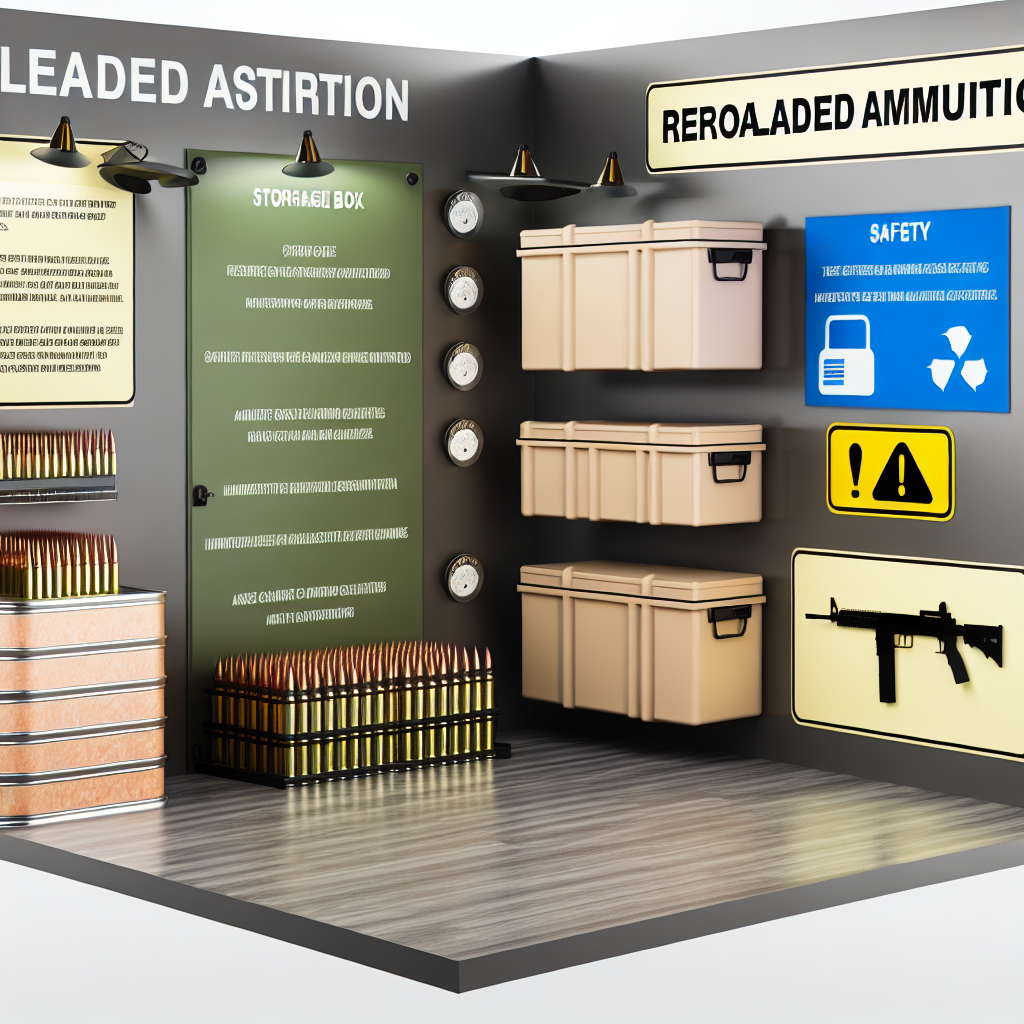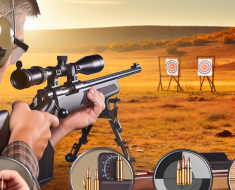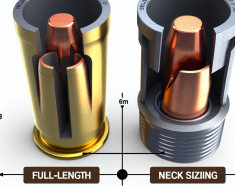How to Store Reloaded Ammo Safely and Securely

Reloaded ammunition offers firearm enthusiasts the benefits of cost savings, customization, and sustainability. However, with these advantages comes the critical responsibility of ensuring that reloaded ammo is stored safely and securely. Proper storage not only preserves the quality and reliability of your ammunition but also prevents accidents, unauthorized access, and potential legal issues. This comprehensive guide explores best practices for storing reloaded ammo, emphasizing safety, security, and longevity.
Understanding the Importance of Proper Ammo Storage
Reloaded ammo differs from factory-made rounds because it is assembled manually by the user or a third party, involving components such as brass cases, primers, powder, and bullets. While factory ammo undergoes rigorous quality control processes, reloaded rounds require careful handling and storage to maintain their integrity.
Improper storage can lead to several hazards:
- Deterioration of Components: Exposure to moisture or extreme temperatures can cause corrosion or degradation of powder and primers.
- Misfires or Malfunctions: Damaged primers or compromised powder can result in dangerous firearm malfunctions.
- Safety Risks: Unsecured ammunition can lead to accidental discharge or access by unauthorized individuals.
- Legal Liability: In some jurisdictions, improper storage may violate laws governing ammunition possession.
A study by the Bureau of Alcohol, Tobacco, Firearms and Explosives (ATF) underscores that most accidental discharges involving ammunition occur due to improper handling or storage. Therefore, understanding how to store reloaded ammo safely is essential for every gun owner.
Selecting the Right Storage Environment
The environment where you store your reloaded ammo plays a crucial role in maintaining its safety and effectiveness. Key factors include temperature control, humidity levels, and protection from physical damage.
Temperature Considerations
Ammunition should be stored in a cool environment—ideally between 55°F (13°C) and 75°F (24°C). Extreme heat can accelerate powder degradation while cold temperatures might cause condensation when moving between environments.
Example: A case study from a shooting range in Texas revealed that rounds stored in an unventilated garage exposed to summer heat above 90°F showed signs of corrosion on primer caps after just six months. In contrast, those kept indoors in climate-controlled conditions retained their quality over years.
Humidity Control
Moisture is one of the biggest enemies of ammunition. High humidity promotes rust on brass casings and primer corrosion. Maintaining relative humidity below 50% is ideal for long-term storage.
- Use silica gel packets or desiccants within ammo containers to absorb excess moisture.
- Avoid basements or other damp areas unless they are properly dehumidified.
- Consider using airtight containers to create a moisture barrier.
Physical Protection
Your storage area should protect ammo from impacts, dust, chemicals, and pests. Ammo boxes made from durable plastic or metal are preferable over cardboard boxes which degrade faster. Additionally, ensure that the storage space is clean and free from corrosive substances such as solvents or acids.
Choosing Appropriate Ammunition Containers
The choice of container is integral to effective ammo storage. Different options vary in terms of durability, moisture resistance, ease of organization, and security features.
Ammunition Cans (Ammo Cans)
Ammunition cans originally designed for military use are popular among reloaders for their robust construction and airtight seals. Made from steel with rubber gaskets around the lid, these cans provide excellent protection against moisture and physical damage.
- Pros: Durable; stackable; often equipped with locking mechanisms; airtight seals prevent moisture ingress.
- Cons: Heavier than plastic alternatives; may require additional padding inside to prevent bullet damage during transport.
Plastic Ammo Boxes with Seals
Modern plastic containers with gasket seals offer lightweight alternatives that resist corrosion. They come in various sizes allowing for better organization by caliber or load type.
- Pros: Lightweight; transparent options available for quick identification; resistant to rust; often more affordable.
- Cons: Less impact-resistant than metal cans; seals may degrade over time if not maintained properly.
Airtight Vacuum-Sealed Bags
If you plan on storing ammo for extended periods (several years), vacuum-sealing individual rounds or batches inside moisture-proof bags combined with desiccants offers maximum preservation benefits. This method removes air that could carry moisture or contaminants into contact with the cartridge components.
Security Measures: Preventing Unauthorized Access
The secure storage of reloaded ammunition is not just about preserving quality but also about preventing theft or misuse—especially in households with children or vulnerable individuals. According to data from the National Safety Council (NSC), approximately 30% of accidental shootings occur when unauthorized persons access firearms or ammo without supervision.
Lockable Storage Solutions
The safest practice is storing reloaded ammunition in lockable containers or safes specifically designed for firearms accessories. Options include:




